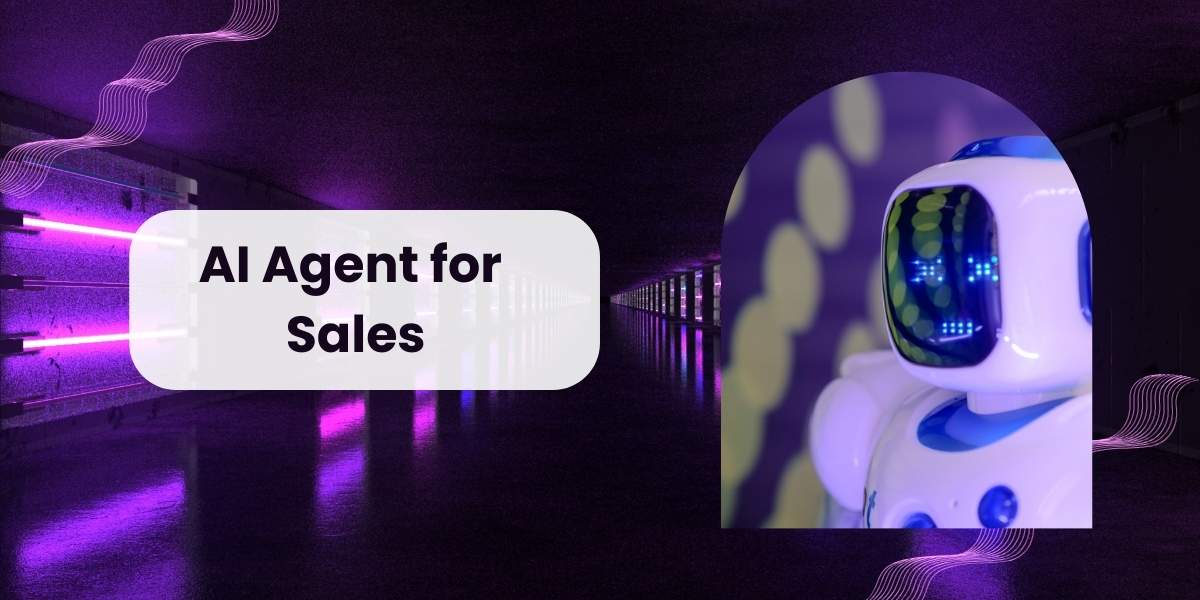Running a small business often means you’re handling everything yourself – one moment you’re doing marketing, the next you’re helping customers, then diving into finances or admin work. When time and resources are limited, finding ways to free up hours and reduce stress becomes a priority. That’s where AI agents can make a difference. These smart tools can take over repetitive jobs, crunch numbers, and even interact with customers, giving you more breathing room without the cost of extra staff. In this guide, we’ll look at some of the most useful AI agents for small business, along with simple ways to set them up or build your own.
You’ll see real examples of how other business owners are putting them to work and learn what kind of benefits they’re getting — from saving hours each week to improving service and growing revenue.
Best AI Agents for Small Business
Small business owners know what it’s like to juggle countless responsibilities—whether it’s sales, customer service, or daily admin. With smart automation agents, those routine tasks get handled faster, freeing you up for what matters most. Below, you’ll find top AI-enabled tools that are especially suited for small teams and growing businesses.
- Agentforce (Salesforce): An assistant within Salesforce CRM that helps you manage leads, automate daily tasks, and gather customer insights—making it easier for small teams to stay organized and close deals.
- Zapier AI Agent: Lets you set up no-code automation across the apps you use most, ideal for tasks like syncing data, sending email follow-ups, and managing reminders without manual input.
- Alta AI Agent (“Katie” / “Luna”): Focuses on automating sales prospecting, outreach efforts, and scheduling, streamlining processes in popular CRM systems.
- Lindy (no-code agents): Offers the flexibility to create custom workflows among agents, handling tasks such as email sorting, follow-up outreach, and data movement—all without coding.
- Omneky: Automates ad creative generation, running real-time tests and optimizations to continually improve your online campaigns based on actual performance.
- Levity: A no-code agent built for smart email sorting, customer request routing, and data tagging, so you stay organized without adding engineering overhead.
- CrewAI: Designed for developers, this multi-agent system makes building complex automation solutions quick and approachable.
- Jotform AI Agent: Assists website visitors, manages form submissions, and can trigger essential workflows for onboarding and appointment scheduling.
- Vertex AI Agent Builder (Google): Build scalable automation agents for streamlining business processes—suitable whether you’re a startup or a larger team.
- Salesforce Agentforce Platform: Empowers small and mid-sized businesses to create their own agents for managing sales, customer support, and internal workflows with simple low-code tools.
These solutions offer a wide range of automation across sales, marketing, support, and operations. For small businesses looking to save time and raise their level of service, choosing from these agents can be a smart next step toward growth and efficiency.
Also Read – AI Agents for Real Estate
AI Agents for Small Business Near Me
Searching for “AI agents near me” might seem a bit unusual, since most AI services are cloud-based and available anywhere. Instead, what really matters is finding local experts or consultants who can help set up and customize these tools for your business.
- You’ll find agencies and consultants nearby who specialize in deploying platforms like Agentforce, Vertex AI, or Lindy for local companies.
- These providers often work with businesses in your region – such as retail shops, hospitality venues, or service firms – and can tailor solutions to fit your specific industry and local needs.
- To pinpoint agents or integrations built for your area, check out AI marketplaces like Salesforce AppExchange or Vertex templates. These platforms sometimes offer options that support regional compliance, local language requirements, or industry standards unique to your location.
So, while the AI itself runs on global infrastructure, having local service providers means you’ll get support, advice, and tuning that matches your business environment. In short, the tools are accessible anywhere, but choosing a partner familiar with your region can make all the difference.
Building AI Agents for Small Business
Creating your own AI agent doesn’t have to be complicated. With the right planning and tools, small business owners can design intelligent systems that handle routine work, respond to customers, and improve efficiency—without a full development team. Here’s a simple, step-by-step approach to get started:
- Define the Purpose: Pinpoint exactly what you want the agent to handle—such as customer support, booking automation, data analysis, or follow‑up with leads.
- Choose Your Tools: Opt for no‑code solutions like Zapier, Lindy, or Google’s Vertex AI Agent Builder, or go for developer‑friendly frameworks like CrewAI if you need more customisation.
- Prepare Data & Workflows: Collect examples that will guide the agent—like common customer questions, email templates, or CRM events—to use as training prompts or workflow triggers.
- Configure the Agent Workflow: Map out what triggers the agent (e.g., “new lead in CRM”), how it decides on a response, what it outputs, and when it should hand off to a human.
- Pilot Test and Iterate: Start small. Test the agent in a limited setting, watch how it performs, collect feedback, and adjust its tone, logic, and behaviour.
- Integrate with Systems: Link the agent to your CRM, email, calendar, messaging apps, or project tools so it fits seamlessly into your existing operations.
- Launch and Scale: Once it’s working well, roll it out to more functions like customer service, marketing, or finance, and keep measuring results.
- Monitor and Improve: Use performance analytics to track response rates, conversion rates, and time saved. Keep refining to make it more effective over time.
By starting with clear goals and building in stages, small businesses can create AI agents that truly add value—streamlining operations, improving customer experience, and freeing up time for growth‑focused work.
Conclusion
For small businesses, AI agents can be genuine game‑changers—taking on repetitive work, improving customer interactions, and boosting productivity without adding significant overhead. Whether you choose ready‑made solutions such as Agentforce, Zapier, or Alta, or create your own with platforms like Lindy or Vertex, the aim is the same: free up time for high‑value work and focus energy on growth.
The key is to start with your biggest operational pain points—perhaps it’s automating lead follow‑ups, managing booking requests, or answering frequently asked questions—and then expand gradually as you see results. With thoughtful setup and regular human oversight, AI agents can help small businesses cut costs, deliver faster service, and operate more efficiently.
As these technologies continue to evolve, expect agents to become even more powerful, adaptable, and easier to deploy—unlocking new opportunities for innovation and competitive advantage in the small business space.
FAQs
Q1. Do I need coding skills to use AI agents?
Ans:- Not necessarily. Many platforms let you build and manage agents without any coding through easy no-code tools. Developer-friendly options like CrewAI or Google’s Vertex are there if you want to get more technical—but they’re optional.
Q2. Are AI agents secure enough for small business data?
Ans:- Yes. Most providers follow strict data compliance standards and use encryption to protect your information. It’s always a good idea to review each vendor’s privacy policies and security measures before committing.
Q3. Can AI agents replace staff members?
Ans:- AI agents aren’t meant to replace your team. Instead, they handle routine and repetitive tasks, helping staff focus on more complex work. They’re here to boost efficiency, not take over human judgment.
Q4. How much do these AI tools typically cost?
Ans:- Entry-level AI agents can be free or quite affordable, perfect for small businesses just getting started. More advanced platforms usually charge monthly fees ranging from about $30 up to $200 or more, depending on features and usage.
Q6. Are AI agents suitable for every type of small business?
Ans:- Generally, yes—especially if your business deals with customer inquiries, repetitive workflows, or marketing processes. These tools are flexible and scalable, so they adapt well to different industries and needs.
Q7. How long does it take to build a custom AI agent?
Ans:- If you use no-code platforms, you can have an agent up and running in just a few days. Custom-built agents that need developer input can take several weeks, depending on how complex your requirements are.
Q8. Do AI agents improve over time?
Ans:- Absolutely. Many AI agents use feedback loops and ongoing training, often monitored by humans, to learn and get better at handling tasks, improving their accuracy and responsiveness as they operate.





